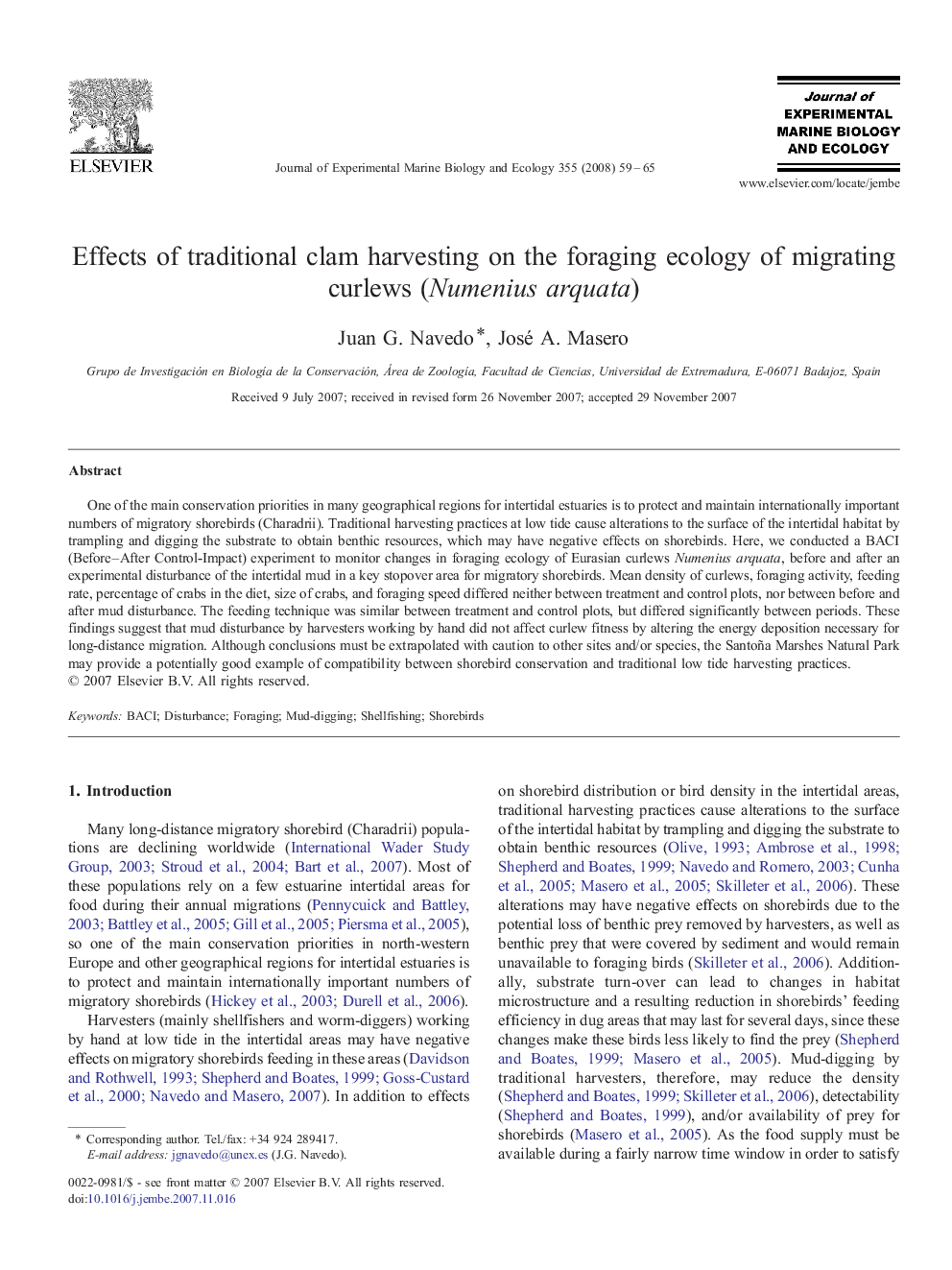| کد مقاله | کد نشریه | سال انتشار | مقاله انگلیسی | نسخه تمام متن |
|---|---|---|---|---|
| 4397569 | 1305893 | 2008 | 7 صفحه PDF | دانلود رایگان |

One of the main conservation priorities in many geographical regions for intertidal estuaries is to protect and maintain internationally important numbers of migratory shorebirds (Charadrii). Traditional harvesting practices at low tide cause alterations to the surface of the intertidal habitat by trampling and digging the substrate to obtain benthic resources, which may have negative effects on shorebirds. Here, we conducted a BACI (Before–After Control-Impact) experiment to monitor changes in foraging ecology of Eurasian curlews Numenius arquata, before and after an experimental disturbance of the intertidal mud in a key stopover area for migratory shorebirds. Mean density of curlews, foraging activity, feeding rate, percentage of crabs in the diet, size of crabs, and foraging speed differed neither between treatment and control plots, nor between before and after mud disturbance. The feeding technique was similar between treatment and control plots, but differed significantly between periods. These findings suggest that mud disturbance by harvesters working by hand did not affect curlew fitness by altering the energy deposition necessary for long-distance migration. Although conclusions must be extrapolated with caution to other sites and/or species, the Santoña Marshes Natural Park may provide a potentially good example of compatibility between shorebird conservation and traditional low tide harvesting practices.
Journal: Journal of Experimental Marine Biology and Ecology - Volume 355, Issue 1, 8 February 2008, Pages 59–65